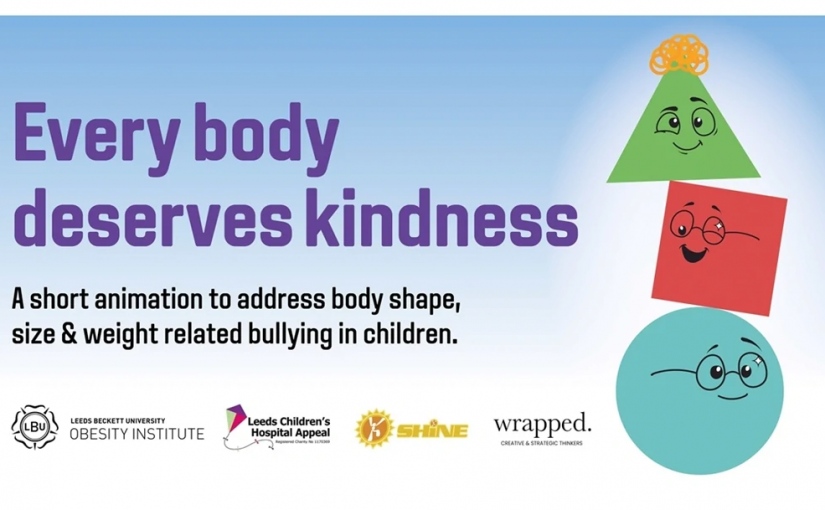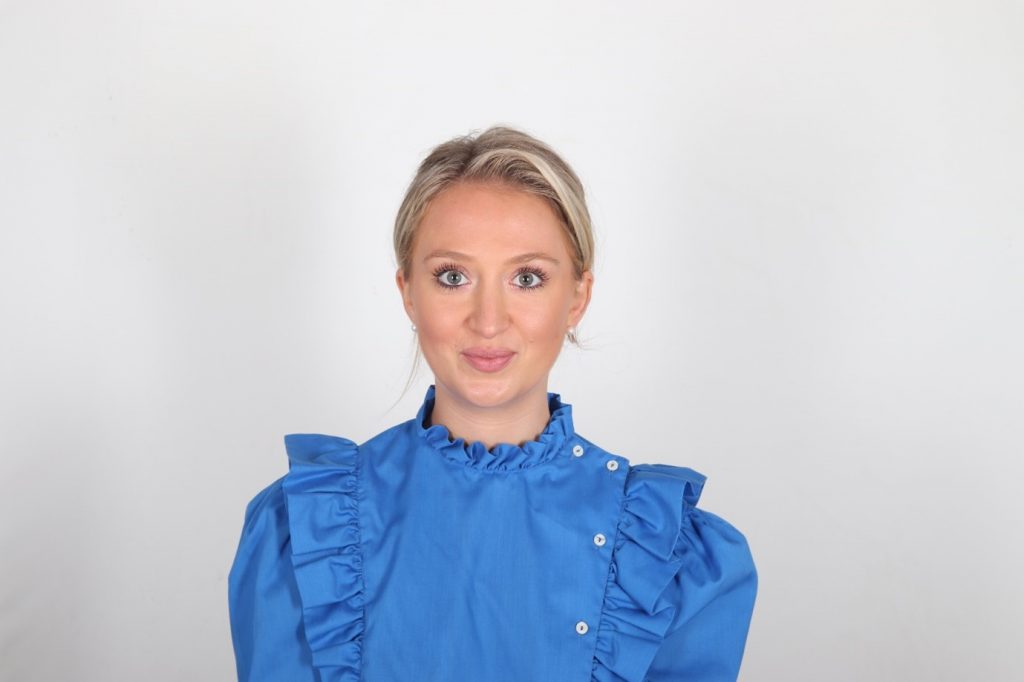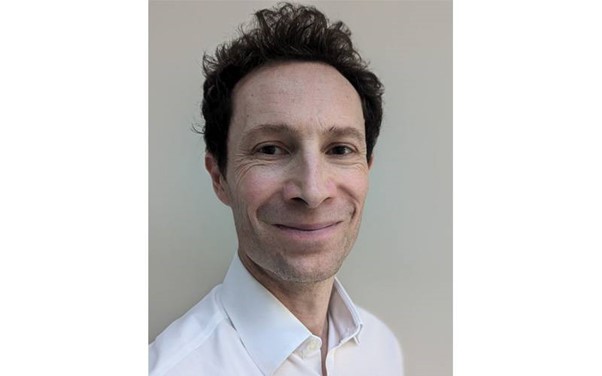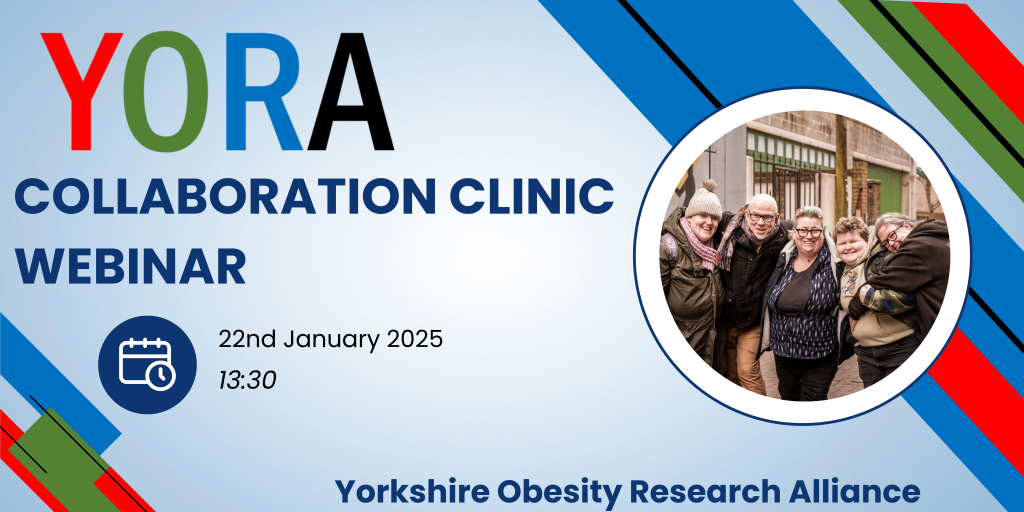The Winter 2026 YORA newsletter is now available online here, and distributed to YORA members email inbox.
Category: News & Events
YORA Newsletter Autumn 2025
The Autumn 2025 YORA newsletter is now available online here, and distributed to YORA members email inbox.
Every Body Deserves Kindness

We are excited to introduce Every Body Deserves Kindness, a short film for children aged 6–9 designed to raise awareness of weight-related bullying while promoting kindness, inclusion, and positive body image.
The film was co-designed with young people, families, paediatricians, psychologists, child weight management experts, as well as primary school teachers and head teachers, ensuring it is both engaging and evidence-informed.
Alongside the film, we have developed a comprehensive teaching pack, aligned to PHSE for Key Stage 1 and 2. These resources are designed to support children in understanding, discussing, and challenging stigma and bias around body weight, shape, and size.
? Watch the film here.
?Click here for more information about the film and to download the free resource pack.
If you could spare a few minutes, we’d really appreciate your feedback on the resource pack. Please click here to answer a few questions. Thank you!
We hope these resources help create a more kind, inclusive, and body-positive environment in your community.
Dolly van Tulleken is a policy consultant and visiting researcher at the at Cambridge University’s MRC Epidemiology Unit where she completed her PhD and postdoctoral position specializing in government policy processes and the history of government policy on obesity and food-related ill health in England. Her research has been published in leading journals such as The Milbank Quarterly, BMJ Open, PLOS One, and Public Health Nutrition. Dolly’s expertise lies in analysing policy effectiveness and identifying the mechanisms that drive meaningful public health change. In 2024, she co-authored Nourishing Britain: A Political Manual for Improving the Nation’s Health with Henry Dimbleby, which contained practical political insights about food-related health policy from 20 prime ministers, health secretaries and other senior politicians. In this conversation, Dr. Dolly van Tulleken shared with us her journey through academia, policymaking, and consultancy, focusing on driving meaningful change in the food system.

Bridging Academia and Policy
Dr. van Tulleken highlights how her PhD research examining decades of proposed government obesity policies led her to feel a strong urgency to help effect real-world change. This prompted her return to the policy world, where she founded Dolitics, a consultancy aimed at supporting evidence-based policy change. Whilst working mostly with charity clients in her consultancy role, Dr. van Tulleken is also involved in research, remaining a visiting researcher at the MRC epidemiology unit in Cambridge. When summing up her role, Dr. van Tulleken termed herself an information broker with the aim of progressing policy. “Most of my work is about how to actually try and support policy change to happen and that’s done through all sorts of different ways; research collaboration, liaising with policymakers, building up networks”.
The Power of Multidisciplinary Collaboration
While acknowledging the challenges of working across sectors and disciplines, Dr. van Tulleken emphasises that impactful change requires collective effort, sharing her motto- “nothing worth achieving can be achieved alone”. The expertise in her work, she points out, “is almost knowing who to collaborate with and learn from and where the interesting work is happening”, then being able to bring the best people together.
Translating Research into Practice
Drawing from her co-authored 2023 report, Nourishing Britain: A Political Manual for Improving the Nation’s Health, she reflects on the use of research as a tool for practical action. The manual is based on interviews with 20 senior political figures and offers guidance to future leaders on overcoming barriers to food policy reform. Dr. van Tulleken explains “the whole point was to give the manual to today’s politicians and tomorrow’s politicians and say ‘these are the sorts of challenges your predecessors say you’re very likely to face, and this is how to get over them’”.
Advice for Early-Career Researchers and Advocates
For those hoping to make an impact on obesity policy, Dr. van Tulleken encourages leaning into your strengths, embracing collaboration, and doing work that you love. She urges people not to limit themselves- whether by standing for local office, contributing to campaigns, or simply making valuable research more accessible to those in power.
Her advice includes:
- Be communicative: If you’re producing work, share your research findings with people working in the space. Not a lot of people know what is being published, so package it up and be an active sharer. Translate academic findings into actionable summaries for policymakers and the public. “Sharing knowledge can be incredibly, incredibly powerful”.
- Build relationships: Connect with local leaders, policymakers, and community groups. She adds “scarily, sometimes the stuff that ends up becoming very influential can be a matter of someone having a connection with that person”.
- Stay politically open: As a researcher, explore different ways to engage with Parliament, or consider standing for election or becoming a councillor as part of the change process. Reflecting on her own experience of standing for election, Dr. van Tulleken says “I stood knowing I wouldn’t win, but I used the process of developing a manifesto, having a platform to speak out, to talk about these sorts of issues that I care about”.
Where Policymakers Can Start
When asked how local authorities might begin addressing obesity, Dr. van Tulleken underscores the value of local action whilst recognising “lots of things need to happen all at once in order for change to be made”. She again points to the importance of building connections, citing an example of one man on a mission to create a localised food system. “He was building up these personal connections to see whether there could be better distribution networks, more localised systems, whether retailers would be able to have better connections with local farmers”. Dr. van Tulleken sees local authorities having an enormous amount of power, referring to examples such as banning junk food advertising on public transport and building local food networks as effective grassroots strategies. She also points to the Scottish Good Food Nation Act as a promising model for long-term, localised food planning.
Navigating Weight Stigma
When asked about how we can avoid the trap of individual blame and stigma around weight, Dr. van Tulleken shares her frustrations with the food system being a “primary driver of health problems”. She points out “the cards are stacked against everyone to enjoy a healthy life, which I think is completely ludicrous”.
“The more attention is on the food system and on the large corporations that are benefitting the most from this system, the more we move away from the blame on the individual and we understand that we’re actually all operating in this system”.
This pressure on those who are benefiting from the system, she notes, is how we can move away from stigma and shame, and allow people to recognise that “their health, their eating, food, weight, whatever- it usually all links to the food system that we’re in”.
Dr. van Tulleken recognises that “even talking about it, even when trying to counter against stigma, shame and blame, it can be really hard”. When telling people she works in food policy, people respond with ‘oh no don’t look at what I’m eating’, or ‘don’t judge me for my lunch’.
“You’ve still got this notion that you’re there judging, and I think it’s a really important responsibility of people working in this space to actively be aware of that and how we can communicate in a way that shows this is about making sure everyone can enjoy a nourishing diet and have affordable access to that”.
The biggest gaps in Obesity Research
When asked about pressing research priorities, Dr. van Tulleken highlights that there is very little activity in what a sustainable, health-promoting food system could actually look like- especially at the local level. She urges researchers and policymakers to not only study this, but to experiment, prototype, and learn by doing.
“You have to kind of experiment- it really takes innovation, experimentation, confidence and risk by policy makers and researchers in this space to just try things. Monitor it, see what works, see what doesn’t work, but with the ambition of going how can we make a nourishing food system commercially viable?”
Local authorities, she says, are well-positioned to pilot these innovations despite limited resources, and she sees promise in Scotland’s Good Food Nation Act, which mandates government-backed local food planning.
Challenges and Joys of the Work
Finding non-conflicting funding not tied to powerful food corporations emerges as the biggest barrier for Dr. van Tulleken in her work. “If you have very strict rules about where you get funding from, the pots that are available are very limited”. Though she does note that policy-backed initiatives like Scotland’s Good Food Nation Act may signal progress.
On a more positive note, she enjoys the clarity and purpose in her day-to-day work and the joy of collaborating with passionate colleagues, including family members-something she sees as a unique privilege.
What’s Next
Looking ahead, Dr. van Tulleken hopes to continue conducting deep-dive research while improving how findings are communicated. “Filling in the gaps of the research that we need to continue making happen, with no excuses for that being a reason for inaction”.
Her long-term vision includes encouraging more people to become change makers- especially those motivated by food justice and public health.
“If I can see more and more people getting elected who are primarily in politics for food and health, that would be an incredible achievement.”
Link to Dolitics: https://dolitics.co.uk/home
Written by Kaydee Shepherd, YORA Coordinator and PhD student at Leeds Beckett University.
YORA Newsletter Spring 2025
The Spring 2025 YORA newsletter is now available online here, and distributed to YORA members email inbox.
Dr. Oliver Mytton is a Clinical Associate Professor and Honorary Public Health Consultant at UCL Great Ormond Street Institute for Child Health. With a focus on research, policy, and public health practice, Dr. Mytton’s insights are shaping the future of obesity prevention. He has unique insights from his work across bodies such as local and national government, non-governmental organisations (NGOs), and different layers of the NHS. In this conversation, he discusses his path into obesity research, his upcoming projects which could influence policy and health outcomes in the UK, and the challenges and rewarding aspects of his career.

From Medicine to Public Health
Dr. Mytton’s career trajectory began as a medical student, where he began questioning “how and why people got sick in the first place”. His growing interest in public health led him to wonder how- rather than treating one individual with a condition- would you put in the right systems of care for multiple people with these conditions? During his studies, Dr. Mytton focussed a dissertation project on food taxes, before then undertaking a medical elective on the Thai Burmese border looking at malaria control, sparking his interest in using research to drive policy and deliver services practically. Whilst training as a junior doctor, Dr. Mytton took an opportunity to work for the Chief Medical Office, which led his way into public health.
He later worked in various public health roles, including at the Department for Health and Social Care, where he saw the intersection of policy and public health firsthand. His time working with NGOs and healthcare systems further influenced his decision to focus on obesity.
The Move Towards Obesity Research
Dr. Mytton’s shift to studying obesity came during his medical training, inspired by the work of Richard Doll on smoking. “I was thinking about what’s the next big challenge for the next generation coming through because smoking felt as if it was solved as a public health issue. Looking back on it, that wasn’t quite true. But for me, the next big challenge seemed to be obesity”. Whilst working for the Health Select Committee, Dr. Mytton was involved in editing Time to Solve Childhood Obesity, a report which examined the roles of government, food industries, and policies in preventing childhood obesity.
When asked what priorities should come from the report, Dr. Mytton believes that policymakers must think “more about structural changes and less about individual interventions”. He adds the need for a push for further regulation of the food industry, “…so we’re seeing healthier food on our shelves and food marketed in a more responsible way”.
The Role of Clinical Experience in Public Health
Having a clinical background has helped Dr. Mytton approach public health issues with a grounded perspective. “I think it’s given me an ability to sort of try and boil things down to the basics. And it’s just like trying to take the complexity out of a language because you have to do that when you talk to patients. But you also have to do that a lot of the time when you talk to policymakers” he explains. This experience also helps him understand the challenges of translating clinical interventions into population-wide strategies.
Upcoming Research: Shaping Policy and Public Health
Dr. Mytton will soon be leading two major research projects that could influence obesity prevention strategies in the UK. One project evaluates the National Child Measurement Programme (NCMP), a project which is broken into two components. The research team will seek to “understand the impact of measurement on children principally, whether it has any negative impacts on their mental well-being but also understanding for any sort of positive benefits or changes, and understanding that from a child perspective and a parent perspective”. The second component looks at how local authorities deliver the NCMP, which Dr. Mytton explains the aim as “understanding which approaches may be more cost effective or better, which may depend on different local circumstances. Rural areas may have to do things differently as the class sizes can be smaller and the journey times between schools longer. Also understanding how local authorities use that data locally. What’s the local value for that data?”
The second project investigates the impact of price promotions in supermarkets, particularly regarding unhealthy foods. Dr. Mytton and his team aim to assess whether voluntary restrictions by supermarkets can lead to healthier consumer choices. He plans to investigate to what extent they were fully implemented before understanding the impact on how much consumers spend. The project will involve an economic analysis to understand impact on the sort of share price, turnover, employability in the supermarkets and key manufacturers that might be implemented by what the supermarkets have done as well as working with consumers to understand their perspectives.
Challenges at the Local Authority Level
Dr. Mytton emphasizes that local authorities face significant challenges when it comes to weight management and obesity prevention. For local authorities, limited resources and competing demands complicate the decision-making process. Dr. Mytton encourages local authorities to focus on structural and policy-level changes, though he acknowledges that the political buy-in is often a significant barrier. “You’ve got to have the political buy in and some of the leavers you can pull possibly don’t have that much impact at a local level” he adds.
The Biggest Gaps in Obesity Research
When asked about gaps in obesity research, Dr. Mytton identifies the need for more effective regulation of the food industry. “We have a series of structural responses that have been outlined for how we might regulate in food industry… do they go far enough? Probably not.” He identifies that the challenge lies in balancing the government’s role in regulating food industries with public and industry acceptability, pointing out how it’s difficult to get industry buy-in because regulation often threatens profit growth. “It plays into a bigger narrative we’re seeing at the moment around the regulation of industry, whether it’s around carbon emissions, social media, tech, or food”.
Overcoming Challenges: The Struggle for Funding
For Dr. Mytton, one of the biggest career challenges has been securing funding for his research. “Grants are quite short term” he explains. “Long-term, secure funding doesn’t really exist”, he adds, which is a challenge faced across the world of research.
Personal Reflections on His Career
Dr. Mytton reflects on the most rewarding aspects of his career in obesity research. “At first, I thought it would be seeing policies that I have worked on being implemented but that takes a long time and there are so many other factors involved,” he says. As he has progressed, he realises it’s more “giving evidence, data and facts a voice and ensuring they are heard and play into the decision-making process.”
He also finds satisfaction in the day-to-day “working in teams and helping junior researchers develop”. Reflecting on the nature of research, Dr. Mytton adds “it’s helpful to get your satisfaction from different sorts of things because some of these things are very slow long-term burns and some of the things are kind of more immediate day-to-day”.
Conclusion
Dr. Mytton’s work continues to shape the direction of obesity prevention in the UK, combining clinical expertise, public health knowledge, and innovative research. As his projects progress, they will likely influence both local and national policies, aiding us in preventative measures. His passion for giving evidence a voice remains a driving force in his career, and his research will continue to play a pivotal role in public health in the years to come.
Read more about Dr. Mytton’s work by following this link.
Written by Kaydee Shepherd, YORA Coordinator and PhD student at Leeds Beckett University.
YORA Newsletter New Year 2025
The first 2025 YORA newsletter is now available online here, and distributed to YORA members email inbox.
YORA Collaboration Clinic

YORA drop-in sessions which will allow members to come together and share ideas, research, and reach out for support on projects.
The YORA Collaboration Clinics are one hour, bimonthly YORA collaboration drop-in sessions which will allow members to come together to collaborate and share ideas, research, and reach out for support on projects.
YORA members are invited to join and can take the opportunity to share your work, expand your network or discuss any research problems you may have. If you would like to join, please register for this event.
The next session is on the 22nd January 2025 at 13:30 will be hosted by Dr Catherine Homer and Nicola Corrigan.
Sign up to join the next Collaboration Clinic here.
If you would like to join the collaboration clinics but are not yet a member of YORA, you can sign up for the event and register to join YORA here.
Want to reach out for support on your project? Ask the attendees a question here.
YORA Newsletter Autumn 2024
The Autumn 2024 YORA newsletter is now available online here, and distributed to YORA members email inbox.
YORA Conference 12th September 2024

On the 12th September 2024 we hosted our 1st in person YORA conference: A celebration of the practice and research across the Yorkshire Region. The conference was centred around the voice of lived experience, highlighting the fundamental importance of patient and public involvement in further research.
To watch recordings from Dasha Nicholls, Imperial College of London and Safi Abdi, TRACE addiction PPIE group, and view the slides available from the day, please click here.
Thank you so much to all of our amazing speakers who presented on the day and provided pre-recordings.
